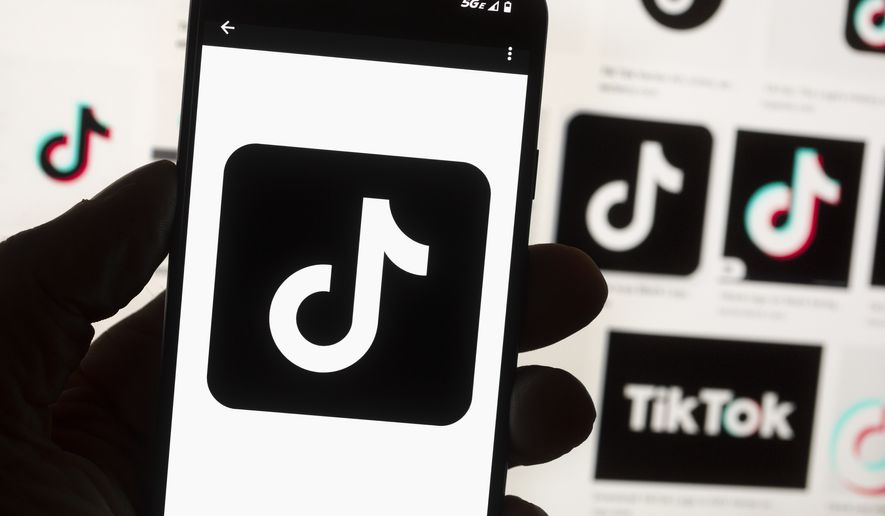Suspicions about TikTok’s link to the Chinese government spread across party lines
01.03.23
Source: The Washington Times

Democratic leaders are recognizing the national security concerns about TikTok, long voiced by the Trump administration, as fears about the tech platform’s alleged data harvesting and algorithmic manipulation have hit the mainstream.
President Biden’s CIA director and the Democratic leaders of the House and the Senate Intelligence committees have acknowledged fresh concerns about the threat posed by TikTok.
And TikTok was banned from government smartphones in the recently passed $1.7 trillion government funding package, prompting the Democrat-run House Administration Committee to order all House members and staffers to delete the TikTok app from their government-issued devices.
Mr. Biden has not publicly decided whether to crack down on TikTok, as his administration has continued to study TikTok over national security concerns first raised by former President Donald Trump’s team.
CIA director William J. Burns, however, said in December that TikTok poses a grave national security risk for the U.S. government.
“It’s a genuine concern, I think, for the U.S. government in the sense that because the parent company of TikTok is a Chinese company, the Chinese government is able to insist upon extracting the private data of a lot of TikTok users in this country and also to shape the content of what goes on to TikTok, as well to suit the interests of the Chinese leadership,” Mr. Burns told PBS.
Data collected by TikTok and other Chinese companies goes straight to Beijing, said Keith Krach, former undersecretary of state in the Trump administration that pushed for cracking down on the platform.
“Members of the People’s Liberation Army are embedded in these companies,” Mr. Krach said in a statement. “Their goal is to export George Orwell’s version of ‘1984’ into the 21st century through applications like TikTok that are exploited for information gathering, surveillance and military AI applications.”
The TikTok ban in the year-end spending bill demonstrated the new bipartisan appeal of cracking down on the China-linked social media app. The ban was approved in the Senate by unanimous consent that required all 100 members to sign off on it. In the House, Speaker Nancy Pelosi, California Democrat, advocated for inserting it in the spending bill, according to reports.
In another bipartisan move, Rep. Raja Krishnamoorthi, Illinois Democrat, partnered with Rep. Mike Gallagher, Wisconsin Republican, in December to propose a bill blocking all transactions with TikTok and other tech platforms under Chinese influence.
TikTok, however, insists it is working to resolve national security concerns and has begun making changes to accommodate issues raised in discussions with the federal government.
TikTok spokesperson Brooke Oberwetter said in December her company wants politicians to push the Biden administration to close its review of TikTok. She said the proposed agreement under review should resolve all governmental concerns involving security.
“The agreement under review will meaningfully address any security concerns that have been raised at both the federal and state level,” Ms. Oberwetter said in a statement. “These plans have been developed under the oversight of our country’s top national security agencies — plans that we are well underway in implementing — to further secure our platform in the United States, and we will continue to brief lawmakers on them.”
TikTok’s arguments have not persuaded Sen. Mark Warner, leader of the Senate Intelligence Committee.
The Virginia Democrat has expressed regret for not cracking down on the platform sooner, conceded that Mr. Trump was correct about the threat posed by TikTok, and has urged states to pursue bans of TikTok’s use on government devices.
This month, Virginia Gov. Glenn Youngkin joined GOP governors in states across the country enacting bans on TikTok from state government devices. Alabama, Maryland, New Hampshire, South Carolina, and Texas also implemented similar rules restricting TikTok in December. South Dakota took action in November.
Mr. Warner said he was glad to see Mr. Youngkin’s action.
“TikTok has the stamp of approval of the Chinese Communist Party and it poses a serious national security threat due to its data collection practices and its ability to reach and manipulate Americans,” Mr. Warner said in a statement. “I hope to see more states take action to keep our government technology out of the CCP’s reach.”
The states’ restrictions have caused other institutions to take a closer look at the platform, including in academia.
After Alabama ordered restrictions on TikTok from government networks and devices with limited exceptions in December, Auburn University reportedly began blocking TikTok on university Wi-Fi and warned employees against using it on school-issued devices.
The University of Oklahoma told students it will ban the use of TikTok by students and staff, after Gov. Kevin Stitt’s executive order banning TikTok on state devices.

